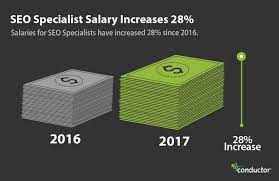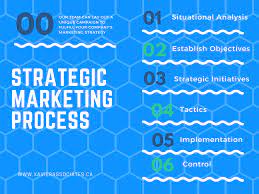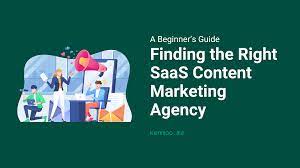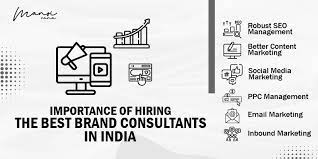Marketing and Strategy Consulting Firms: Driving Business Success
In today’s competitive business landscape, companies are constantly seeking ways to gain a competitive edge and drive growth. This is where marketing and strategy consulting firms come into play. These firms provide invaluable expertise and guidance to businesses, helping them navigate the complex world of marketing and develop effective strategies to achieve their goals.
Marketing and strategy consulting firms bring a wealth of knowledge and experience to the table. They have a deep understanding of market trends, consumer behavior, and industry best practices. By leveraging this expertise, they can help businesses identify opportunities for growth, optimize their marketing efforts, and make informed decisions that drive results.
One of the key benefits of engaging a marketing and strategy consulting firm is their ability to provide an objective perspective. Often, businesses can become too close to their own operations, making it difficult to see the bigger picture or identify areas for improvement. Consultants bring fresh eyes to the table, conducting thorough analyses of a company’s current marketing strategies, processes, and performance. They then provide actionable recommendations based on data-driven insights.
These firms also excel in developing comprehensive marketing strategies tailored to each client’s unique needs. Through in-depth research and analysis, they gain a deep understanding of the target audience, market dynamics, competition, and business objectives. Armed with this knowledge, they craft strategic plans that outline clear goals, messaging frameworks, target channels, and tactics for implementation.
Furthermore, marketing and strategy consulting firms possess a wide range of capabilities across various marketing disciplines. From brand positioning and messaging development to digital marketing strategies such as SEO (Search Engine Optimization), social media campaigns, content creation, advertising tactics – these firms have experts in every aspect of modern marketing.
Another strength lies in their ability to assist businesses in times of change or crisis. Whether it’s entering new markets or navigating reputational challenges, consultants offer guidance on how best to adapt strategies or mitigate risks effectively.
Collaboration is a cornerstone of the relationship between marketing and strategy consulting firms and their clients. They work closely with businesses, involving key stakeholders at every stage of the process. Through open communication channels, they ensure that goals are aligned, expectations are managed, and progress is tracked.
Moreover, marketing and strategy consulting firms often provide training and knowledge transfer to internal teams. This empowers businesses to develop their in-house capabilities, enabling them to sustain long-term success beyond the engagement with the consulting firm.
In conclusion, marketing and strategy consulting firms play a vital role in helping businesses thrive in today’s competitive landscape. Their expertise, objectivity, and tailored strategies contribute significantly to achieving business objectives. By partnering with these firms, companies can leverage their industry knowledge, gain a competitive advantage, and drive sustainable growth.
8 Advantages of Marketing and Strategy Consulting Firms in the UK
- Expertise
- Objective Perspective
- Market Insights
- Tailored Strategies
- Specialized Skills
- Efficiency
- Crisis Management
- Long-Term Collaboration
Drawbacks of Marketing and Strategy Consulting Firms: A Comprehensive Analysis
- Cost
- Dependency
- Time Constraints
- Lack of Industry-Specific Knowledge
Expertise
Expertise: The Key Advantage of Marketing and Strategy Consulting Firms
In the fast-paced and ever-evolving business world, having access to expertise is crucial for success. This is where marketing and strategy consulting firms truly shine. These firms are home to teams of professionals who possess a wealth of knowledge and expertise across various industries. Their ability to offer valuable insights and innovative ideas sets them apart as invaluable partners for businesses seeking to excel in their marketing efforts.
The professionals within marketing and strategy consulting firms have accumulated years of experience working with diverse clients from different sectors. This exposure has equipped them with a deep understanding of market trends, consumer behavior, and industry best practices. Their broad knowledge base allows them to identify emerging opportunities, predict market shifts, and develop strategies that resonate with target audiences.
When engaging with a marketing and strategy consulting firm, businesses gain access to a team of experts who can provide fresh perspectives on their marketing challenges. These professionals have an objective outlook, free from any internal biases or preconceived notions that may hinder innovation or growth. They bring a fresh set of eyes to the table, enabling them to identify untapped potential or areas for improvement that may have gone unnoticed.
Furthermore, the collective expertise within these firms enables them to stay ahead of the curve in terms of industry trends and technological advancements. They continuously monitor market dynamics, consumer preferences, and emerging technologies that can drive business growth. Armed with this knowledge, they can recommend innovative strategies that leverage the latest tools and platforms available.
Marketing and strategy consulting firms also foster an environment of collaboration and knowledge-sharing. Their teams work closely with businesses to understand their unique challenges, objectives, and target audience. By actively involving key stakeholders throughout the process, consultants ensure that their recommendations align with the client’s vision while leveraging their own expertise.
Moreover, these firms often invest in ongoing professional development for their teams. They encourage continuous learning through training programs, industry conferences, and staying updated with the latest research and insights. This commitment to staying at the forefront of industry knowledge allows marketing and strategy consulting firms to deliver the most up-to-date and effective strategies to their clients.
In conclusion, the expertise offered by marketing and strategy consulting firms is a significant advantage for businesses looking to enhance their marketing efforts. Their teams of experienced professionals bring a wealth of knowledge, insights, and innovative ideas to the table. By leveraging their expertise, businesses can tap into new opportunities, optimize their marketing strategies, and achieve sustainable growth in an ever-changing business landscape.
Objective Perspective
Objective Perspective: Uncovering Opportunities for Success
In the fast-paced and ever-evolving business world, it’s easy for companies to become entrenched in their own operations, making it challenging to see the bigger picture or identify areas for improvement. This is where marketing and strategy consulting firms truly shine, offering an invaluable benefit: an objective perspective.
Consultants provide a fresh set of eyes, free from internal biases or preconceived notions. They approach a company’s marketing strategies and processes with a neutral viewpoint, enabling them to identify blind spots and uncover new opportunities that may have gone unnoticed.
By conducting thorough analyses and leveraging their expertise, consultants bring data-driven insights to the table. They delve deep into market trends, consumer behavior, and industry best practices. This comprehensive understanding allows them to spot gaps in a company’s current strategies and recommend effective solutions.
The objective perspective provided by consultants is particularly valuable when it comes to developing marketing strategies. They take the time to thoroughly research the target audience, competition, and market dynamics. By examining these factors objectively, they can craft strategic plans that align with the company’s goals while capitalizing on untapped opportunities.
Moreover, consultants have no personal stake in the existing processes or outcomes. This allows them to challenge conventional thinking within an organization and encourage innovation. By questioning established norms and exploring alternative approaches, they help businesses break free from stagnant routines and embrace new ideas that can drive growth.
The objectivity of consultants also plays a crucial role in times of change or crisis. When faced with challenges such as entering new markets or managing reputational issues, companies often find it difficult to objectively assess risks or develop effective mitigation strategies. Consultants bring their unbiased perspective into these situations, helping businesses navigate through uncertainty with clarity.
Collaboration is key when working with marketing and strategy consulting firms. They actively engage with key stakeholders within the organization throughout the process. By fostering open communication channels, they ensure that goals are aligned, concerns are addressed, and progress is tracked.
In conclusion, the objective perspective provided by marketing and strategy consulting firms is a significant pro that businesses can leverage to their advantage. By bringing in external expertise and fresh eyes, these consultants help identify blind spots, uncover new opportunities, and develop effective strategies based on data-driven insights. With their support, companies can break free from internal biases and preconceived notions to achieve sustainable success in today’s competitive market.
Market Insights
Market Insights: The Advantage of Marketing and Strategy Consulting Firms
In the fast-paced and ever-changing business world, staying ahead of the curve is crucial for success. This is where marketing and strategy consulting firms truly shine, offering a valuable advantage through their in-depth market insights.
These firms understand the importance of conducting thorough market research to gain a comprehensive understanding of industry trends, consumer behavior, and competitive landscapes. By staying up-to-date with the latest market intelligence, they provide businesses with a wealth of knowledge that can inform strategic decision-making.
Market insights offered by consulting firms go beyond surface-level information. They delve deep into market dynamics, identifying emerging trends, shifts in consumer preferences, and potential opportunities or threats. Armed with this knowledge, businesses can make informed decisions that align with current market conditions and capitalize on untapped potential.
Understanding consumer behavior is also a key aspect of market insights provided by consulting firms. By studying consumer preferences, needs, and pain points, these firms help businesses tailor their marketing strategies to resonate with their target audience. This leads to more effective messaging, increased customer engagement, and ultimately higher conversion rates.
Furthermore, marketing and strategy consulting firms analyze the competitive landscape to identify key players in the industry. They assess competitors’ strengths and weaknesses to help businesses differentiate themselves effectively. This enables companies to position themselves strategically in the market by leveraging their unique value propositions.
By harnessing these market insights, businesses gain a competitive edge by making well-informed decisions based on real-time data rather than assumptions or guesswork. This proactive approach allows companies to adapt quickly to changing market conditions and seize opportunities as they arise.
Marketing and strategy consulting firms act as trusted advisors who guide businesses through complex market landscapes. Their expertise in interpreting data provides clarity amidst uncertainty and helps companies navigate potential challenges more effectively.
In conclusion, one of the significant advantages offered by marketing and strategy consulting firms is their ability to provide valuable market insights. Through thorough research and analysis, they equip businesses with the knowledge needed to make informed decisions, stay ahead of industry trends, and outperform their competitors. By leveraging these insights, companies can position themselves strategically in the market and drive sustainable growth.
Tailored Strategies
Tailored Strategies: Unlocking Business Success with Marketing and Strategy Consulting Firms
In the fast-paced world of business, one size does not fit all. Each company has its own unique challenges, goals, and target audience. This is where marketing and strategy consulting firms truly shine. They have the expertise to develop tailored strategies that align with each client’s specific needs, setting them up for success in their respective industries.
One of the key advantages of engaging a marketing and strategy consulting firm is their ability to create customized strategies. These firms invest time in understanding their clients’ businesses inside out. They conduct thorough analyses of market dynamics, competitor landscapes, and target audience demographics. Armed with this knowledge, they craft comprehensive plans that are specifically designed to address the unique challenges and goals of each client.
By taking into account factors such as market positioning and business objectives, marketing and strategy consulting firms ensure that their strategies are aligned with their clients’ long-term vision. Whether it’s expanding into new markets, launching a new product or service, or repositioning an existing brand, these tailored strategies provide a roadmap for success.
Moreover, these firms consider the ever-changing landscape of technology and consumer behavior. They stay up-to-date with emerging trends in digital marketing channels such as social media platforms, search engine optimization (SEO), content marketing, and more. By incorporating these elements into their tailored strategies, they ensure that clients are well-positioned to reach their target audience effectively.
Another benefit of tailored strategies is the ability to stand out from competitors. Marketing and strategy consulting firms conduct thorough competitor analysis to identify gaps in the market and opportunities for differentiation. By leveraging this insight, they help clients develop unique value propositions that resonate with their target audience.
Furthermore, these customized strategies are not just theoretical concepts; they are actionable plans for implementation. Marketing and strategy consulting firms provide clear roadmaps with specific tactics, timelines, and measurable objectives. This ensures that their clients have a clear understanding of the steps needed to achieve their goals and can track progress along the way.
In conclusion, marketing and strategy consulting firms offer a valuable advantage through their ability to develop tailored strategies. By considering factors such as target audience demographics, competitor analysis, market positioning, and business objectives, these firms create comprehensive plans that set their clients up for success. With their expertise and customized approach, businesses can confidently navigate the complexities of the market and achieve their unique goals.
Specialized Skills
Specialized Skills: Unlocking the Power of Expertise
In today’s fast-paced and ever-evolving business landscape, having access to specialized skills is crucial for success. This is where marketing and strategy consulting firms truly shine. With their teams of experts in various marketing disciplines, these firms offer businesses the opportunity to tap into specific areas of expertise as needed.
One of the key advantages of working with marketing and strategy consulting firms is their ability to provide specialized skills across a range of disciplines. Whether it’s branding, digital marketing, social media management, content creation, advertising campaigns, or public relations (PR), these firms have professionals who excel in each area.
Branding experts within consulting firms understand the importance of creating a strong brand identity that resonates with target audiences. They can help businesses develop compelling brand strategies that differentiate them from competitors and establish a consistent brand image across all touchpoints.
Digital marketing specialists bring a wealth of knowledge in leveraging online channels to drive customer engagement and conversions. From search engine optimization (SEO) to pay-per-click (PPC) advertising and email marketing campaigns, they have the expertise to optimize digital efforts for maximum impact.
Social media management is another critical skill offered by these firms. With social media platforms becoming increasingly influential in shaping consumer perceptions, having professionals who understand how to effectively engage audiences on platforms like Facebook, Instagram, Twitter, and LinkedIn can be a game-changer for businesses.
Content creation is an art form that requires creativity and strategic thinking. Marketing consultants who specialize in content creation can help businesses craft compelling narratives that resonate with their target audience across various mediums such as blogs, videos, infographics, and more.
Advertising campaigns play a vital role in capturing attention and driving desired actions from consumers. Consulting firms with advertising experts can develop impactful campaigns that cut through the noise and deliver measurable results.
Public relations (PR) professionals within these firms understand the importance of managing a company’s reputation and building positive relationships with the media and stakeholders. They have the skills to craft compelling press releases, handle crisis communication, and secure media coverage that enhances a company’s image.
By partnering with marketing and strategy consulting firms, businesses gain access to these specialized skills without the need for full-time hires or extensive training. This allows companies to tap into expertise as needed, ensuring that they have the right professionals working on specific projects or initiatives.
Furthermore, these firms often stay at the forefront of industry trends and best practices. Their experts continuously update their skills and knowledge to deliver cutting-edge solutions to clients. This ensures that businesses receive the most up-to-date strategies and tactics that align with current market dynamics.
In conclusion, specialized skills offered by marketing and strategy consulting firms provide businesses with a competitive advantage in today’s complex business landscape. By leveraging these experts in various marketing disciplines, companies can tap into specific areas of expertise as needed, driving growth, enhancing brand reputation, and achieving their business objectives.
Efficiency
Efficiency: Unlocking Business Potential with Marketing and Strategy Consulting Firms
In today’s fast-paced business environment, time is a precious resource. Every minute counts when it comes to driving growth and staying ahead of the competition. This is where marketing and strategy consulting firms excel, offering a valuable pro: efficiency.
By engaging a consulting firm for their marketing and strategy needs, businesses can save significant time and effort. Rather than trying to build internal capabilities from scratch, companies can leverage the expertise of seasoned consultants who bring years of experience to the table.
One of the key advantages of working with marketing and strategy consulting firms is their ability to hit the ground running. These firms have a deep understanding of industry best practices, market trends, and consumer behavior. They have honed their skills through years of working with diverse clients across various sectors.
Instead of spending valuable time researching, experimenting, and learning on their own, businesses can tap into this wealth of knowledge right away. Consultants can quickly assess a company’s current situation, identify areas for improvement, and develop tailored strategies that align with the business objectives.
This efficiency allows companies to focus on their core competencies. By entrusting marketing tasks to capable hands, businesses can allocate resources where they are most needed – whether it’s product development, customer service, or operational excellence.
Moreover, marketing and strategy consulting firms bring an external perspective that can be invaluable in overcoming internal biases or blind spots. They offer fresh insights and objective viewpoints that may not be readily apparent within an organization. This external perspective helps companies see beyond their own assumptions and make more informed decisions.
The efficiency gained through working with consulting firms also extends to project management. These firms are well-versed in navigating complex projects and timelines effectively. With their experience in managing multiple clients simultaneously, they can ensure that projects stay on track, deadlines are met efficiently, and resources are allocated optimally.
Additionally, marketing and strategy consulting firms often have access to a vast network of industry contacts and resources. This enables them to leverage existing relationships and partnerships, saving time and effort in sourcing the right tools, technologies, or marketing channels for their clients.
In conclusion, efficiency is a significant advantage of engaging marketing and strategy consulting firms. By tapping into their expertise, businesses can save time, focus on core competencies, and benefit from an external perspective. With these firms handling marketing tasks efficiently, companies can unlock their true potential and achieve sustainable growth in today’s competitive marketplace.
Crisis Management
Crisis Management: Navigating Reputational Challenges with Marketing and Strategy Consulting Firms
In today’s fast-paced and interconnected world, businesses face the risk of encountering crises or reputational challenges that can significantly impact their brand image. This is where marketing and strategy consulting firms prove their worth by offering expert guidance in crisis management.
A key advantage of engaging these firms is their ability to provide strategic counsel during times of crisis. They understand the importance of swift action and effective communication to mitigate potential damage to a company’s reputation. Marketing consultants bring a wealth of experience in handling various crisis scenarios, enabling them to provide invaluable insights and recommendations on how best to navigate through such challenging situations.
When faced with a crisis, businesses often find themselves dealing with intense scrutiny from the media, customers, and stakeholders. Marketing consultants excel in crafting communication strategies that help companies effectively manage their messaging during these difficult times. They work closely with clients to develop clear and consistent messages that address concerns, demonstrate transparency, and maintain trust.
Moreover, marketing consultants are skilled at identifying potential risks and vulnerabilities before they escalate into full-blown crises. Through thorough analysis and scenario planning, they can help businesses anticipate potential challenges and develop proactive strategies to mitigate them. By taking a proactive approach, companies can be better prepared to handle crises should they arise.
During a crisis, time is of the essence. Marketing consultants understand the need for swift decision-making and action. They assist businesses in managing the flow of information, ensuring that accurate updates are provided promptly while avoiding speculation or misinformation that could further harm the brand’s reputation.
Additionally, marketing consultants work closely with internal teams to ensure alignment throughout the crisis management process. They provide training on crisis communication protocols, equipping employees with the skills needed to respond effectively during challenging times. This collaborative approach fosters a sense of preparedness within the organization as a whole.
By engaging marketing and strategy consulting firms for crisis management support, businesses can benefit from their expertise in reputation management, brand protection, and stakeholder communication. These firms bring a fresh perspective and objective insights to help companies navigate crises while minimizing damage to their brand reputation.
In conclusion, marketing and strategy consulting firms are highly adept at crisis management. Their ability to provide guidance during times of reputational challenges is invaluable. By leveraging their expertise, businesses can effectively navigate crises, protect their brand reputation, and emerge stronger from challenging situations.
Long-Term Collaboration
Long-Term Collaboration: The Key to Sustainable Success with Marketing and Strategy Consulting Firms
In the dynamic world of business, success is not a one-time achievement but an ongoing pursuit. This is where marketing and strategy consulting firms truly shine. These firms understand the importance of long-term collaboration and strive to build enduring relationships with their clients.
One significant advantage of working with marketing and strategy consulting firms is their commitment to providing ongoing support beyond the initial engagement. They recognize that strategies need to be continuously monitored, evaluated, and adjusted to ensure sustained success.
By adopting a partnership approach, these firms become invested in the long-term growth and prosperity of their clients. They take the time to understand each client’s unique business goals, challenges, and aspirations. This deep understanding allows them to provide tailored solutions that address specific needs while aligning with broader strategic objectives.
Through regular monitoring of results and performance metrics, marketing and strategy consulting firms can identify areas for improvement or adaptation. They analyze data, track key performance indicators (KPIs), and conduct thorough assessments to evaluate the effectiveness of implemented strategies.
This ongoing collaboration allows businesses to stay ahead of market trends, consumer preferences, and industry dynamics. It enables them to make informed decisions based on real-time insights rather than relying solely on historical data or assumptions.
Moreover, marketing and strategy consulting firms bring a fresh perspective to the table during each interaction. Their expertise spans across various industries, allowing them to draw upon best practices from different sectors. This breadth of knowledge fosters innovation as they introduce new ideas, strategies, and approaches that can help businesses stay competitive in a rapidly evolving marketplace.
The long-term collaboration between marketing and strategy consulting firms and their clients also facilitates knowledge transfer. Consultants work closely with internal teams, sharing their expertise, tools, methodologies, and industry insights. This empowers businesses to develop their own capabilities over time so that they can sustain success independently.
Ultimately, the goal of marketing and strategy consulting firms is to be trusted advisors and partners. They aim to build relationships built on mutual trust, open communication, and shared goals. By working together over the long term, they can continuously refine strategies, adapt to changing market conditions, and drive sustained success for their clients.
In conclusion, the emphasis on long-term collaboration sets marketing and strategy consulting firms apart. By providing ongoing support, monitoring results, and adapting strategies accordingly, these firms ensure that businesses can navigate challenges, seize opportunities, and achieve sustainable success in an ever-evolving business landscape.
Cost
Cost: A Consideration When Engaging Marketing and Strategy Consulting Firms
When it comes to engaging marketing and strategy consulting firms, one important consideration for businesses, especially small or medium-sized ones with limited budgets, is the cost involved. The fees charged by these firms may not always align with the financial resources available to some companies.
It’s no secret that marketing and strategy consulting firms offer valuable expertise and guidance that can drive business success. However, their services often come at a premium price. The level of experience, industry knowledge, and strategic insights they bring to the table is reflected in their fees.
For smaller businesses or startups operating on tight budgets, the cost of engaging a consulting firm can be a significant hurdle. Allocating a portion of their resources towards consultancy fees may require careful consideration and budgetary adjustments. It’s essential for these businesses to weigh the potential return on investment against the upfront costs before making a decision.
Furthermore, it’s worth noting that some marketing and strategy consulting firms have minimum engagement requirements or charge additional fees for certain services. This can further add to the overall cost of engaging their services.
However, it’s important to recognize that while there may be upfront costs associated with marketing and strategy consulting firms, their expertise can often lead to long-term benefits for businesses. These benefits may include improved brand positioning, increased market share, enhanced customer engagement, and ultimately higher revenues.
To mitigate the financial impact of engaging a consulting firm, businesses can consider alternative options such as seeking out independent consultants or smaller boutique agencies that may offer more flexible pricing structures. Additionally, businesses can also explore opportunities for collaboration or project-based engagements rather than long-term contracts.
Before making any decisions based solely on cost considerations, it is crucial for businesses to evaluate their specific needs and objectives. Conducting thorough research on different consulting firms’ pricing models and comparing them against the value they offer is essential in making an informed decision.
In conclusion, while cost can be a con when it comes to engaging marketing and strategy consulting firms, it is important to consider the potential long-term benefits that their expertise can bring to a business. By carefully evaluating the return on investment and exploring alternative options, businesses can make a well-informed decision that aligns with their financial resources and strategic goals.
Dependency
Dependency: A Potential Pitfall of Marketing and Strategy Consulting Firms
Marketing and strategy consulting firms undoubtedly offer businesses a wealth of knowledge, experience, and guidance. However, it is important to be aware of a potential drawback that can arise from relying too heavily on these external consultants: the risk of dependency.
When businesses engage marketing and strategy consulting firms, they often benefit from the expertise and fresh perspectives these professionals bring to the table. Consultants can provide valuable insights, data-driven recommendations, and strategic guidance that help companies navigate complex marketing landscapes and achieve their goals.
However, an over-reliance on external consultants can create a sense of dependency within an organization. This dependency can manifest in several ways. First, businesses may become overly reliant on consultants for decision-making processes. Instead of developing internal capabilities and expertise, they may defer critical decisions to the consultants’ judgment. This reliance on external guidance can hinder the development of strategic thinking skills within the company’s own teams.
Furthermore, if businesses continuously rely on external consultants for ongoing marketing efforts or strategy development without actively involving internal stakeholders, it can create a disconnect between the consulting firm’s recommendations and the organization’s unique vision or culture. This lack of alignment may lead to strategies that are not fully integrated into the company’s operations or fail to resonate with its target audience.
Another potential concern is that long-term dependency on marketing and strategy consulting firms might not be financially sustainable for all businesses. Consulting fees can add up over time, especially if companies rely solely on external expertise without investing in building internal capabilities. As budgets become strained or business needs change, maintaining this level of reliance may become challenging.
To mitigate these risks, it is crucial for businesses to strike a balance between leveraging external expertise and developing internal capabilities. Companies should view engagements with marketing and strategy consulting firms as opportunities for learning and knowledge transfer rather than sole dependence.
By actively involving internal teams in collaboration with consultants, organizations can ensure that knowledge and skills are transferred, enabling the development of internal capabilities. This approach empowers businesses to take ownership of their marketing and strategy initiatives, fostering a culture of continuous learning and growth.
Additionally, companies should consider investing in training programs or hiring talent that can complement the expertise of consulting firms. This strategic approach allows businesses to strike a healthy balance between external guidance and internal expertise, fostering long-term sustainability.
In conclusion, while marketing and strategy consulting firms offer valuable expertise, it is essential for businesses to be mindful of the potential drawbacks associated with dependency. By actively involving internal teams, fostering knowledge transfer, and investing in building internal capabilities, companies can strike a balance that maximizes the benefits of external guidance while ensuring long-term sustainability and growth.
Time Constraints
Time Constraints: A Challenge in Implementing Strategies Recommended by Marketing and Strategy Consulting Firms
While marketing and strategy consulting firms offer valuable expertise and guidance, one common challenge businesses face when implementing their recommended strategies is time constraints. The process of executing new initiatives can place significant demands on internal teams, potentially affecting productivity and causing delays.
Implementing the strategies suggested by consulting firms often requires a substantial investment of time and effort from employees who are already juggling multiple responsibilities. These individuals must balance the day-to-day operations of the business while simultaneously incorporating new initiatives into their workflow. This additional workload can lead to increased stress levels and potential burnout among team members.
Furthermore, as employees divide their attention between ongoing tasks and implementing new strategies, there is a risk that productivity may suffer. It can be challenging for individuals to maintain focus on both existing responsibilities and the additional demands placed on them by the recommended changes. This strain may result in delays or suboptimal execution of the strategies, potentially undermining the desired outcomes.
To mitigate these challenges, it is crucial for businesses to proactively manage time constraints during the implementation phase. Clear communication between management, consulting firms, and internal teams is vital to set realistic expectations regarding timelines and resource allocation. This ensures that everyone involved understands the scope of work required and can plan accordingly.
Additionally, businesses should consider allocating dedicated resources or forming cross-functional teams specifically tasked with implementing the recommended strategies. By providing individuals with focused roles and responsibilities related to these initiatives, companies can alleviate some of the burden on existing employees who are already stretched thin.
It is also important for businesses to be mindful of setting achievable goals within realistic timeframes. Rushing through implementation without proper planning or adequate resources can lead to subpar results. Taking the time to properly allocate resources, plan milestones, and monitor progress will help ensure successful execution of the recommended strategies.
In conclusion, while marketing and strategy consulting firms provide valuable insights and recommendations for businesses, the time constraints associated with implementing these strategies can be a significant challenge. By managing expectations, allocating dedicated resources, and setting realistic goals, businesses can overcome these obstacles and successfully execute the recommended initiatives. With careful planning and effective communication, companies can navigate the time constraints to achieve the desired outcomes and drive long-term success.
Lack of Industry-Specific Knowledge
Lack of Industry-Specific Knowledge: A Consideration in Marketing and Strategy Consulting
Marketing and strategy consulting firms are known for their expertise in providing valuable insights and recommendations to businesses. However, one potential drawback is the lack of deep industry-specific knowledge that may be required for certain businesses.
While these firms possess a broad understanding of various sectors, highly specialized industries or niche markets often demand a more nuanced understanding. In such cases, finding a consultant with specific expertise can be challenging, which may limit the effectiveness of their recommendations.
Industries such as healthcare, technology, finance, or legal services have unique dynamics and regulations that can significantly impact marketing strategies. Without a thorough understanding of these intricacies, consultants may struggle to provide tailored advice that aligns with the specific challenges and opportunities within the industry.
For example, healthcare companies face strict compliance requirements and ethical considerations that impact their marketing efforts. A generalist consultant without deep knowledge of this sector may struggle to offer guidance on navigating these complexities effectively.
Likewise, technology companies operate in an ever-evolving landscape where staying ahead of emerging trends is crucial. Without industry-specific insights into the latest advancements or competitor strategies, consultants may struggle to develop innovative marketing approaches that truly resonate with tech-savvy audiences.
In niche markets with unique customer preferences and behaviors, understanding the intricacies is vital for crafting effective marketing strategies. Consultants lacking industry-specific knowledge may underestimate the importance of these nuances or fail to identify key opportunities for growth.
However, it’s important to note that not all consulting firms face this limitation. Some firms specialize in certain industries or have teams dedicated to specific sectors. Engaging such specialized consultants can overcome this con by ensuring access to experts with deep industry-specific knowledge.
Moreover, even when working with generalist consultants, businesses can mitigate this challenge by actively involving internal stakeholders who possess industry expertise. By combining the consultant’s strategic thinking with internal knowledge, businesses can bridge the gap and ensure recommendations are tailored to their specific industry needs.
In conclusion, while marketing and strategy consulting firms offer valuable insights and expertise, the lack of deep industry-specific knowledge can be a potential drawback. Businesses operating in highly specialized industries or niche markets should carefully consider the consultants they engage, seeking those with specific expertise or taking steps to supplement their knowledge internally. By doing so, businesses can maximize the effectiveness of consulting engagements and ensure strategies that truly resonate with their target audience.












